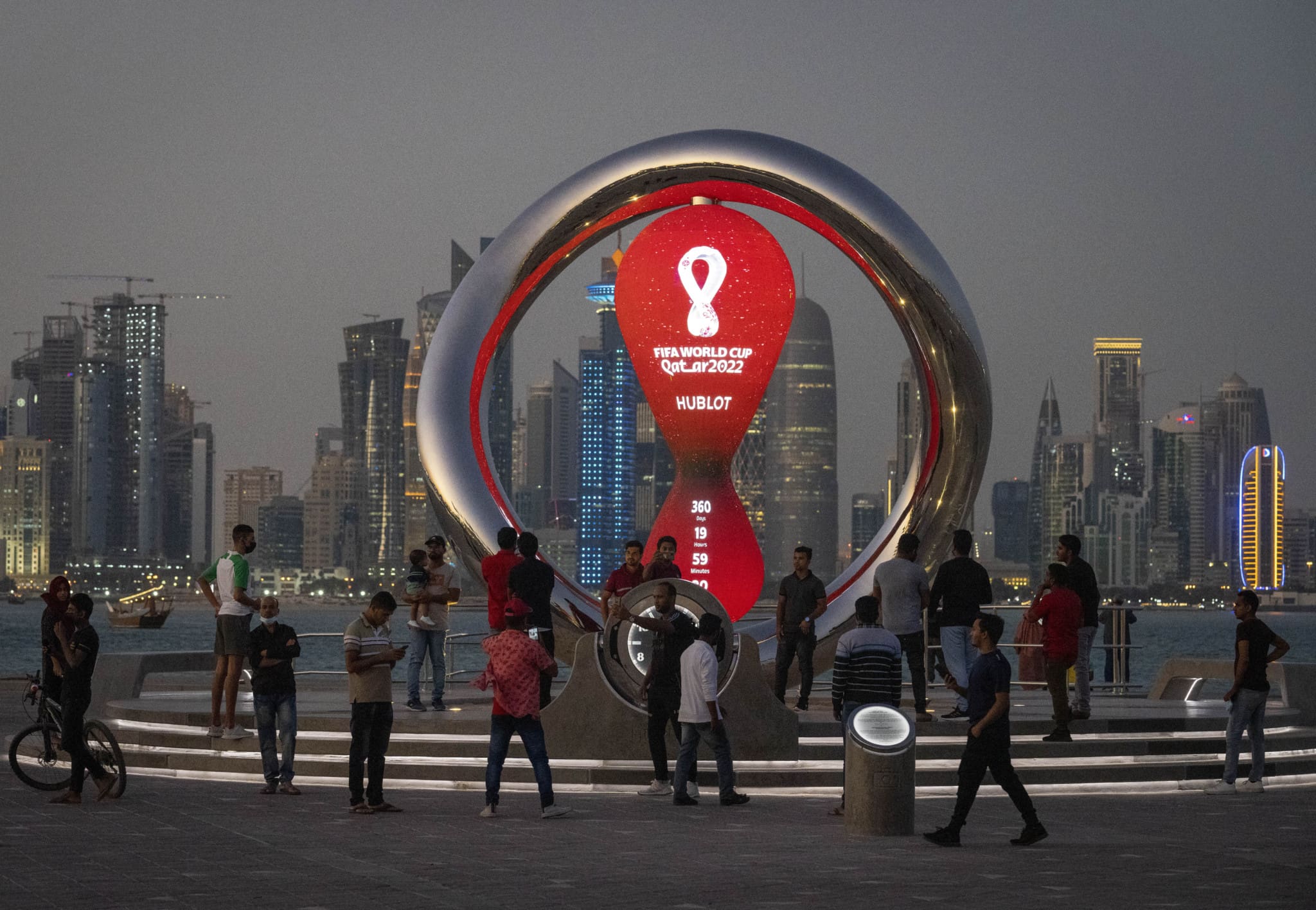The FIFA World Cup has historically been a vibrant celebration of national identities and culture with fans from across the globe temporarily interspersing to create a diverse, kaleidoscope of color and customs, as thousands flock to watch their idols showcase their talent on the world stage.
Previous host nations of the quadrennial event have provided legendary moments. Who could forget the Fanmeile leading up to the Brandenburg Gate in 2006, the South African vuvuzela phenomenon of 2010, or the samba-inspired festivities on Copacabana beach in 2014?
Journalists, politicians, and fans alike, however, have all expressed their concerns about the hosting of soccer’s flagship tournament this year by Qatar. These concerns are not new, nor are they unfounded. There are copious reports questioning just how the World Cup bid by Qatar was successful, as well as the indignation of many commentators and groups at the widely-reported human rights abuses and exploitation of cheap migrant labor adopted by firms responsible for the construction of the seven new venues that needed to be built from scratch for the tournament.
[pp id=24635]
Others have looked at the customs of the country itself, an oil-rich, perennially hot, and deeply conservative Islamic nation, and suggested just how conducive such a country will be to the evermore liberal Western fan base it seeks to play host to.
In recent days, a pamphlet reported by many as being official documentation by the Qatari Supreme Committee for Delivery and Legacy, the domestic body responsible for organizing the tournament, warned Westerners and non-Muslims against a number of behaviors that in many places across the world would be customary, but would be unacceptable in the Islamic state. These behaviors included but were not limited to drinking alcohol; homosexuality or indeed any public displays of affection regardless of sexual orientation; immodesty; and the playing of loud music.
A statement from the Qatari governmental department on Thursday dismissed the graphic that had gone viral on social media as being unofficial and containing “factually incorrect information.”
It insisted that “everyone is welcome to visit Qatar and enjoy the FIFA World Cup 2022,” and claimed the country “has always been an open, tolerant, and welcoming nation.”
However, a scan of the department’s official website would suggest the graphic is not too wide off the mark, and presents an air of ambiguity around just how lenient authorities will be with soccer fans who could unknowingly fall foul of the rules.
For example, on the topic of clothing and “immodesty,” the department’s website claims that people can “generally wear their clothing of choice,” before stating a number of exceptions. Visitors of public places like museums and other government buildings for example “are expected to cover their shoulders and knees” — that means no shorts, no short dresses, vests or tank tops.
Furthermore, while it states that “swimwear is allowed at hotel beaches and pools,” it fails to clarify whether swimwear can be worn anywhere else in the country, for example in local parks to sunbathe, or at non-hotel beaches.
[pp id=40428]
Fans are also told in no uncertain terms that the “removal of shirts” in stadiums is “not permitted.” It does not state what the punishment for such a transgression would be.
Furthermore, in a 16-page document published last week by the organizing committee, it states that women cannot wear clothes that are “too short, tight, or transparent.” Flip flops and Brazilian bikinis will also be prohibited at the beach, French outlet CNews reported.
While the veil is not compulsory for tourists, people are being advised “to integrate and respect the local culture and avoid unwanted attention,” without truly qualifying this statement and clarifying what it means and what the repercussions could be for any transgression.
The consumption of alcohol is also somewhat ambiguous, although authorities have attempted to clarify this point in the lead up to the tournament. The department’s website explains that “alcohol is not part of local culture.” As a deeply Islamic country, religious prohibition against alcohol consumption is adhered to by many, however the website goes on to state that while alcohol is not part of local culture, “hospitality is,” and clarifies that alcohol will be available to purchase for fans who wish to enjoy it.
However, again there are conditions. There is zero tolerance for drinking alcohol in public in Qatar, and being drunk in public is a crime that can land you up to six months in prison. As such, the website confirms that alcohol will only be served in several licensed restaurants and hotels, but fans “should not that drinking alcohol outside of designated areas is prohibited.” It does not elaborate on how authorities will react to visibly intoxicated supporters seen in transit to the stadiums or their accommodation, or anywhere else in a public setting.
[pp id=31887]
Public displays of affection are also outlawed in Qatar and any intimacy in public between men and women can lead to arrest. The Supreme Committee for Delivery and Legacy “kindly” asks for tourists and supporters to refrain from any intimate acts and respect the country’s customs. Again, it does not clarify exactly what constitutes a public display of affection — a hug, or a peck on the cheek for example, could land supporters in difficulty.
Supporters are also advised not to stare at locals, which is considered “rude and inappropriate,” and are warned not to cross their legs, a gesture that is seen as insulting in Qatar.
The tournament begins on Nov. 20 with a match between Qatar and Ecuador at Doha’s al-Bayt Arena, and more than 2 million tickets have been sold for the tournament to date.





